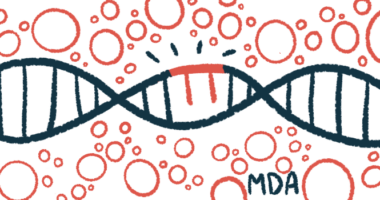MDA creates Gene Therapy Support Network
Launch comes ahead of possible US approval for SRP-9001, a DMD gene therapy

The Muscular Dystrophy Association (MDA) has launched the Gene Therapy Support Network (GTx) that will offer resources and guidance about approved gene therapies for people living with neuromuscular diseases.
Its launch comes shortly ahead of a possible U.S. approval of SRP-9001 (delandistrogene moxeparvovec), Sarepta Therapeutics‘ experimental gene therapy for Duchenne muscular dystrophy (DMD). A decision from the U.S. Food and Drug Administration is expected by the end of the month.
“The Gene Therapy Support Network and the advances it represents are more than 70 years in the making; MDA pioneered the genetic research that has brought us to this exciting moment in time for families impacted by neuromuscular disease,” Donald S. Wood, PhD, president and CEO of MDA, said in a press release. “Through MDA GTx, we will offer expert one-on-one direct support for our community to navigate the complexities of new and emerging gene therapies.”
Correcting underlying genetic causes
Gene therapy is an approach that broadly aims to treat or prevent a disease by correcting its underlying genetic cause. Different types of these therapies are designed to either replace a malfunctioning gene with a healthy one, inactivate it, or modify it.
In the case of SRP-9001, a gene is delivered to patients that codes for the production of a smaller version of the dystrophin protein that’s lacking in DMD. It’s packaged into a modified virus that helps carry it to muscle tissue.
“With gene therapy, the intention is to treat or prevent disease by administering new genetic material into affected cells using a delivery vehicle known as a vector,” said Barry Byrne, MD, PhD, chief medical adviser to MDA, associate chair of pediatrics and director of the Powell Gene Therapy Center at the University of Florida. “Gene therapies only target certain cells in the body, so a person’s basic genetic composition is not changed, just the cells targeted by the therapy.”
After decades of research, in part supported by more than $125 million from the MDA, gene therapies are beginning to be approved and available for patients with neuromuscular diseases that have a known genetic cause.
With the expectation that families will need additional education and support as this new class of therapies emerges, MDA launched the GTx.
An expansion of the MDA Resource Center, GTx will offer one-on-one expert support regarding recently approved genetic therapies for neuromuscular diseases, including Zolgensma for spinal muscular atrophy, Qalsody (tofersen) for amyotrophic lateral sclerosis, and SRP-9001, should it be approved.
Through the program, families will be able to connect with specialists who can provide gene therapy resources and education as they make decisions about their care. Specialists will also be able to help facilitate access to these new therapies, where appropriate.
The first of a series of educational events will be a webinar to be held 4 p.m. ET June 15. Called MDA Virtual Learning: Gene Therapy 101, the webinar with Q&A will discuss the basics of gene therapy — what it is, how it works, and what considerations should be made before treatment.
The event will be hosted by Craig Zaidman, MD, MDA Care Center director, and Natalie Goedeker, a nurse practitioner specializing in neuromuscular disease at Washington University in St. Louis.
Registration for the webinar, which will be available in English and Spanish, is free to the community.
Clinical networking through the MDA Care Center Network, long-term support and best practice sharing between different care centers also will contribute to offer patients additional support.
“After decades of funding towards our work in scientific and clinical research, side-by-side with families, we now have even more hope with gene therapy treatments,” Byrne noted. “It is thrilling to finally have more treatment options that can slow the progression of disease for the families we care for throughout the MDA Care Center Network.”
Families seeking support through GTx can contact the program via phone or email, and can schedule a virtual appointment online.







